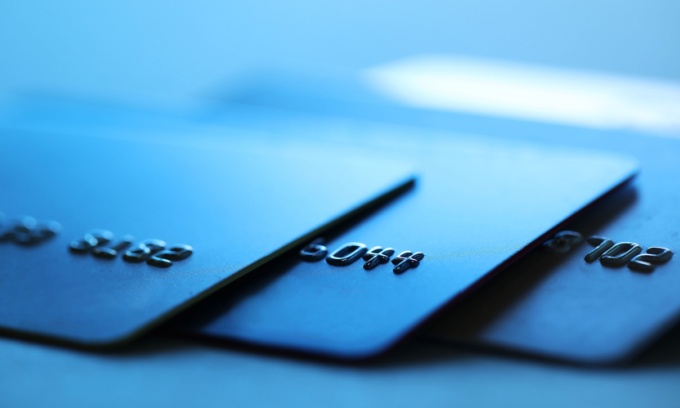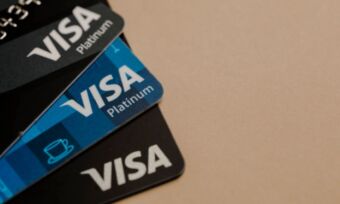Can I get a credit card with bad credit?
While a ‘credit card for bad credit’ isn’t a specific category of product offered by credit card providers, you may still be able to get a credit card with bad credit. Your credit history is generally just one part of the eligibility criteria applied by lenders. The exact criteria can vary between lenders but you’ll typically also need to demonstrate that you can make your repayments, for instance by having a regular income, savings and no or few other debts.
If you have a bad or low credit score, lenders may ask for more evidence to support the other parts of your application to help them get a better idea of your financial situation. This is due to lenders having to abide by Australia’s responsible lending laws, which means they cannot supply credit products (i.e. credit cards, personal loans, car loans etc.) to someone that won’t reasonably be able to afford it.
As for your credit score, there may be a number of reasons why it may be low– perhaps you’ve missed repayments or defaulted on another credit card or loan, or maybe you’ve made too many applications for credit in the past. You might also have no credit history yet. Whatever the reason, you may still have options. But it’s important to be aware of the risks.
Are there credit card providers who don’t perform a credit check?
‘No credit check cards’ are generally not available in Australia. Credit card providers will usually perform a credit check when you apply for a credit card. They will use this information, plus factors such as your income, assets, debts and expenses, to help decide whether to approve your application.
That’s why it’s important to check your credit score first and do your research into the card you’re applying for. You can check your credit score for free with Canstar or via the Canstar App.
Each time you apply for a credit card, it will be listed as an ‘enquiry’ on your credit report. If you make multiple applications for credit in a short space of time, this could actually make your credit score worse. Lenders may view this as a sign that you are desperate, or note that you have been rejected by other lenders, potentially making you an unsuitable candidate for credit.
How do I get approved for a credit card if I have bad credit?
Whether or not you get approved will depend on your personal circumstances, including factors such as your income, assets and expenses, as well as the credit card provider’s own eligibility criteria. But there are some things you can do that could help improve your chances of approval with bad credit:
Demonstrate a steady income
Make sure your income will allow you to comfortably meet your credit card repayments each month. The credit card may have a minimum income requirement, or require you to earn a regular income. If you don’t have a regular income and have payslips to demonstrate this, you may want to hold off on applying.
Pay off other loans or credit
Your credit report typically includes information about your repayment history, including whether you have made your payments on time or missed any payments. If you can demonstrate a history of paying your other debts on time, this could improve your chances of approval. For other credit cards, paying more than the minimum repayment amount can also be helpful.
Work on improving your credit score
It can be worth taking some time to improve your credit score before you begin applying. Your credit score can change as new information is added to your report and negative information becomes older and less relevant to your current situation. Paying off other loans or credit and paying your bills on time can also help improve it. It’s also worth checking your credit report regularly to make sure that the information is correct and that there are no inaccuracies.
Build up your savings
The provider will also ask about your assets, so it can be helpful to have some savings built up. Many Australians opt for a dedicated savings account, especially ones with high interest rates, in order to do this. Saving regularly can also help to show the lender that you will be able to meet your credit card repayments consistently and that you have the ability to budget.
Should I get a credit card if I have bad credit?
If you have bad credit, it might be wise to steer clear of credit cards altogether, at least until you can improve your credit score and/or financial position. If you’ve had difficulty making your repayments or paying bills on time in the past, a credit card could create further financial stress and get you into more debt. If you can’t make your repayments, this could also damage your credit score. If you have no credit history, it could be a good idea to discuss your options with your credit provider.
Before you decide on which credit card to get, it’s also important to read all the relevant documentation, such as the Target Market Determination (TMD) and the Key Facts Sheet, to understand how the product works, the fee and interest costs, what the penalties are if you were to miss a payment and if the provider can assist you if you fall into financial hardship. If in doubt, contact the provider directly.
What other options are available?
Some other potential options include:
- Debit card: A debit card is attached to your everyday transaction account and allows you to spend your own money. This is compared to a credit card where you’re borrowing money and taking on a debt.
- Personal loan: A personal loan is another potential option and, compared to a credit card, offers the advantage of a set repayment schedule and term, and often a lower interest rate. A personal loan can also be risky if you have bad credit, as you’re still taking on debt and will need to repay the loan amount plus interest and fees. Providers also tend to offer higher interest rates for people with bad credit. Again, approval will be subject to the lender’s eligibility criteria and your personal and financial circumstances.
- No interest loans scheme (NILs): If you’re a lower income earner and need money for essential goods and services, you may be eligible for a no interest loan of up to $2,000. You may also be able to borrow up to $3,000 for bond on a new rental property or for recovery after a natural disaster. These loans don’t charge interest, but do come with particular eligibility requirements.
- Buy Now Pay Later (BNPL): Providers like Afterpay and Zip allow you to buy goods or services and pay for them back in instalments. Instead of charging interest, these companies charge fees such as late repayment, monthly account-keeping, payment processing and establishment fees. Due to recent regulatory changes, BNPL companies now must hold Australian credit licences (the same as credit card providers), which means they’ll likely check your credit history when you apply.
It’s advisable to be wary of payday loans as they can charge extremely high fees. Lenders can’t charge interest on payday loans, but they can charge fees such as 20% establishment fees and 4% monthly fees, which can add up quickly.
If you need help getting on top of your bills and debt or you’re facing financial hardship, it may be worth speaking to a free, confidential, independent financial counsellor. The National Debt Helpline provides these counsellors and can be reached on 1800 007 007 or via their website.









